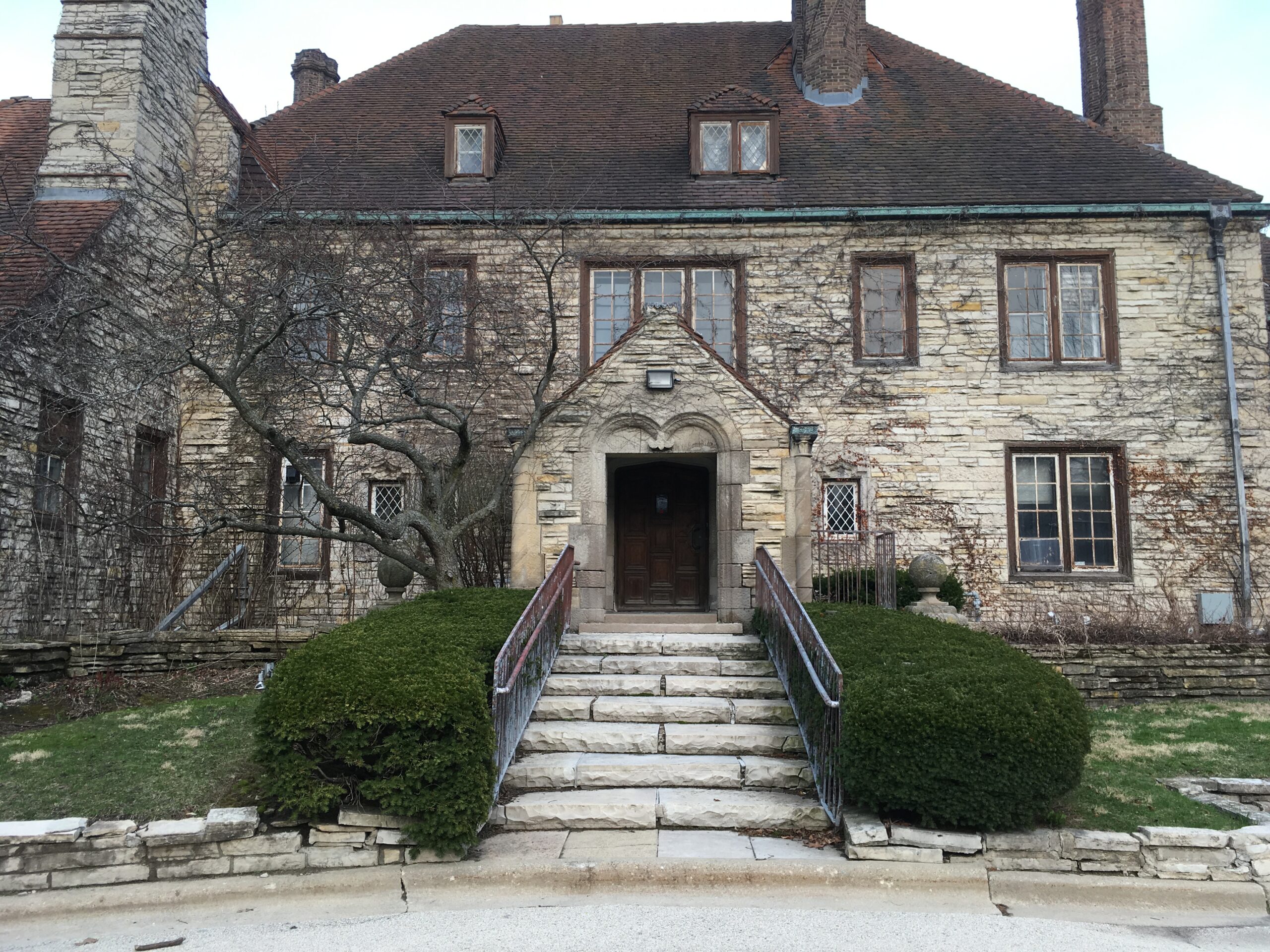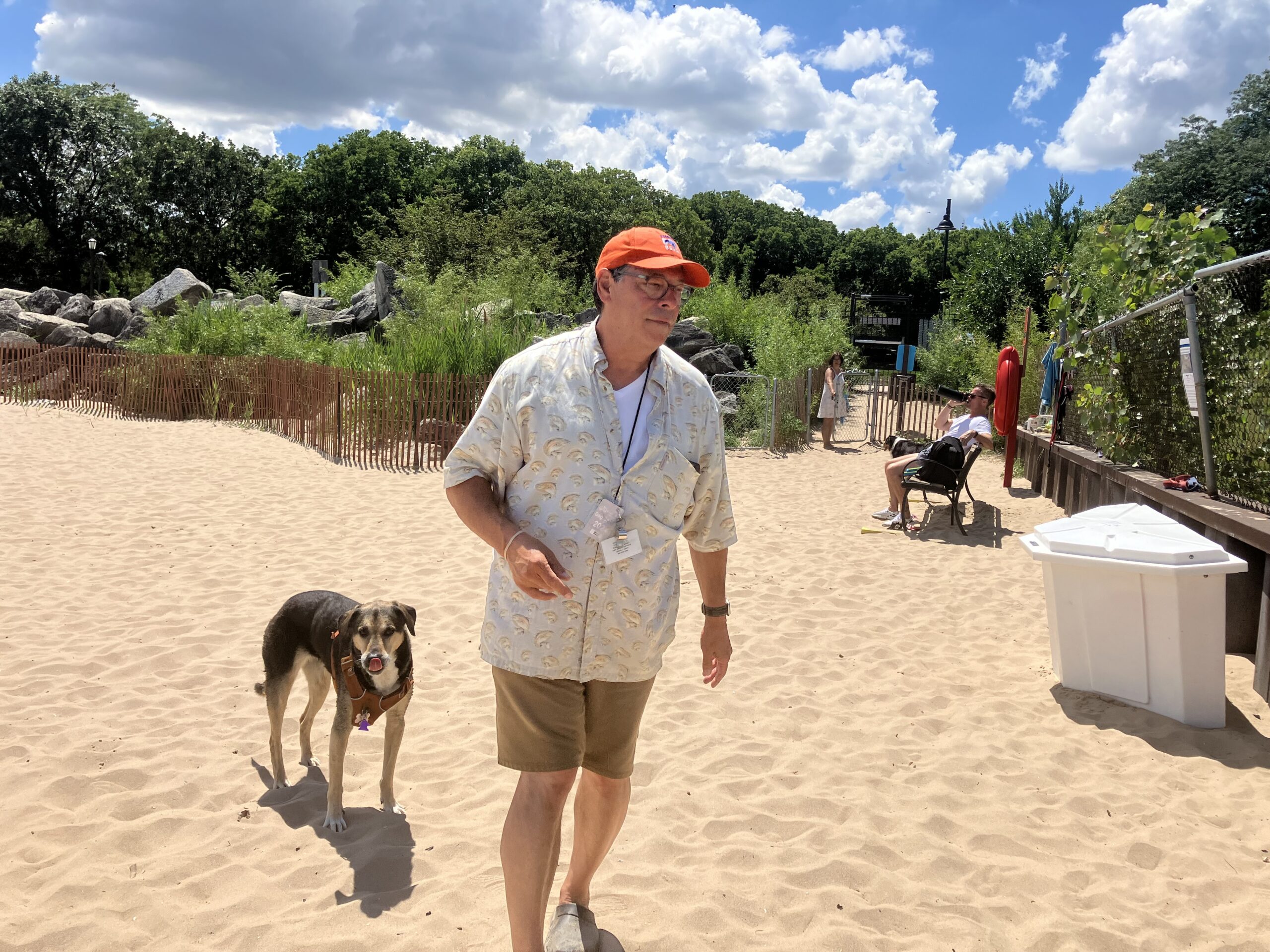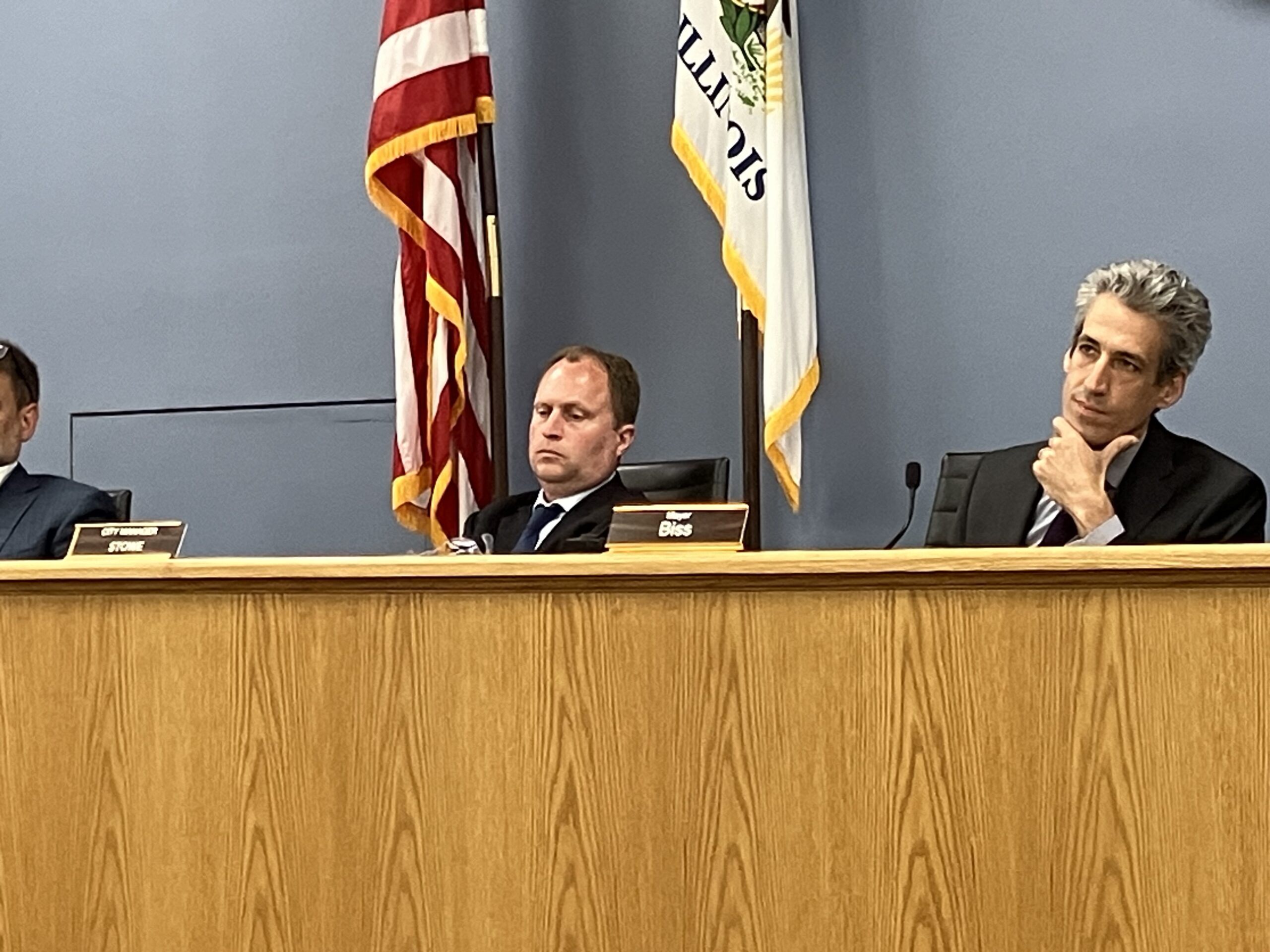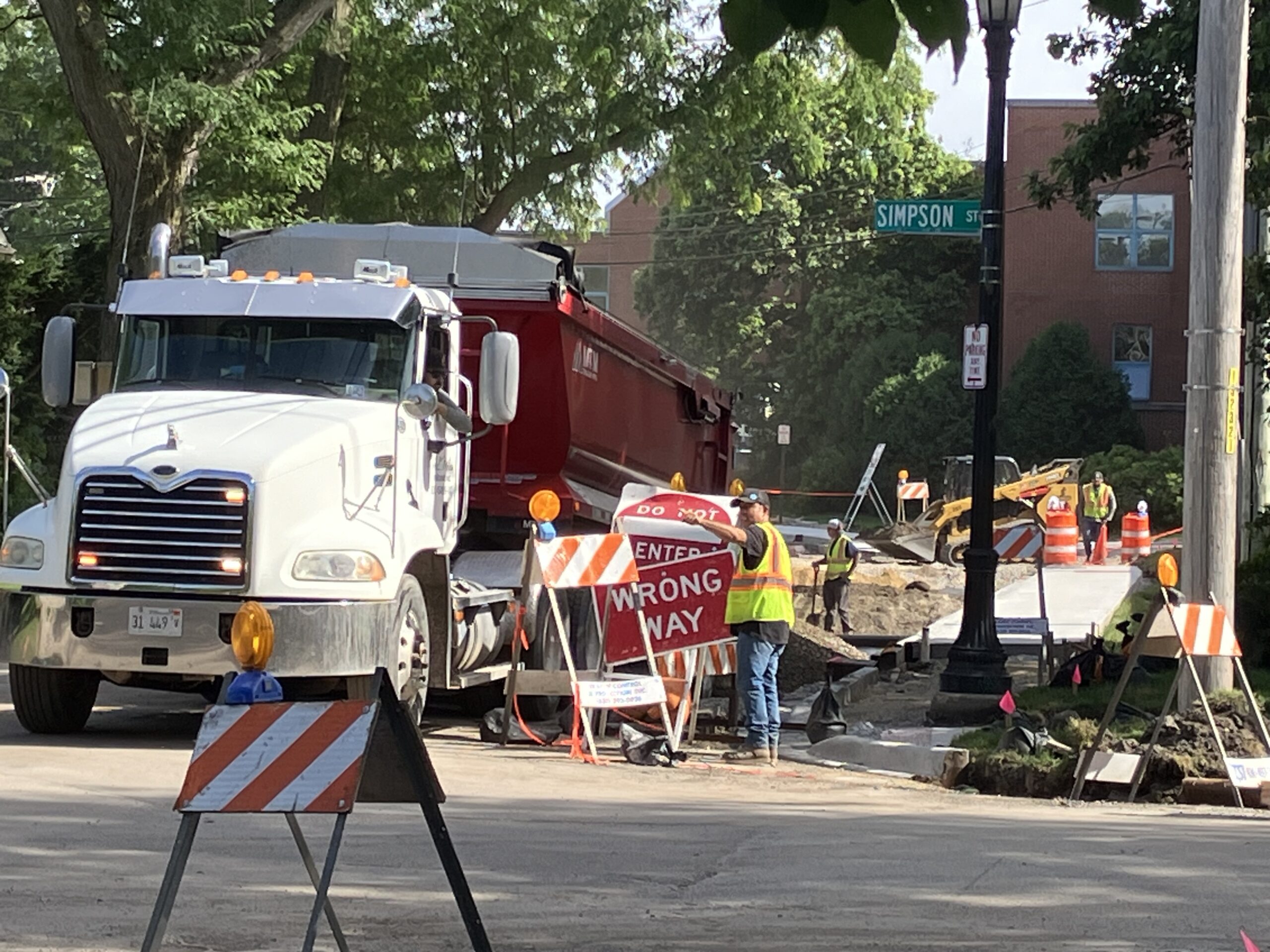By Bob Seidenberg
Maximizing public access to Lighthouse Beach and the surrounding areas, adherence to the lakefront master plan, some commercialization in the area – but with limits.
These were some of the issues council members took away from the responses to a Request for Expressions of Interest (REI) proposal the city received from groups interested in leasing the city-owned Harley Clarke mansion and grounds at 2603 Sheridan Road.
Topping the list?
Financial viability.
In discussion at the council meeting Monday, Fourth Ward Council Member Jonathan Nieuwsma noted that “no matter how good the idea is, if the people that we’re working with can’t raise the funds, it’s not going to happen.”
Other council members made the same point.
“We can have more detailed discussions later,” said Council Member Tom Suffredin (6th Ward), “but the lack of financial viability is what caused this not to work in the past.”
“That means they [interested parties] need to make finances work,” he said. “We need to be open to understanding how they plan to do that, and what that means, and what the trade-offs are.”
10 REI responses
The council feedback came in response to the surprising interest groups had shown to a REI proposal the city sent out in September, a preliminary step to the RFP.
The decision to release a REI before an RFP, the tool most often used, had several benefits, City Planner Cade Sterling wrote in a memo to the council. “Principally, the REI allowed soliciting models of rehabilitation not sought under prior requests for proposal,” he said.
“The responses received included active forms of public-private partnership as well as mutually beneficial rehabilitation models capable of putting the property back into productive and tax-generating use.”
The city received 10 responses. “This is significant,” Sterling told council members at the meeting. “Sometimes you receive two, sometimes you receive three,” said Sterling.
He also noted their diversity. The responses included “wedding venues, event spaces, a boutique hotel, co-working and tenant spaces, museums, wellness centers, arts, culture and community hubs, a Center for Climate Action.”
The total investments for the 10 uses range from $5 million up to $20 million, he said, summing up other aspects of the proposals. “The timeline for implementation also varied pretty significantly,” he noted, “from as early as 2026 to proposals that would see final rehabilitation beyond 2030.”
“Most of the responses wanted to pursue long-term lease agreements. Two showed interest in ownership but were also open to a long-term lease and one identified outright ownership as the preferred model,” he told council members.
First reactions
In discussion, council members shared some of their reactions to the proposals.
Council member Eleanor Revelle, in whose Seventh Ward the mansion is located, noted that “several of the proposals really have a quite a big commercial use to them.”
She said that would be “a big difference from our previous proposals, because previously we always said that the proposals needed to be in conformance with our lakefront Master Plan, which very clearly does not envision commercial uses on the lakefront. So I think the council needs to affirmatively agree that we are going to require the proposals to conform to the lakefront master plan going forward,” she said, inviting response from other council members on that point.
Also, she noted the proposals talked about maintaining access to Lighthouse Beach. The ecology center uses the grassy area east of the mansion for summer camps, she said.
“I would hope that any kind of use would manage to make use of just the existing building and not need to expand on to additional lawn space. And certainly I would hope we wouldn’t have to have additional parking added to the property.”
To own or not to own
Nieuwsma said the financial aspect of the plans for Harley Clarke are the most critical. He suggested a change in the points system the city uses to evaluate proposals, bumping the points awarded in the finance area from 25 to 30 or 35.
Nieuwsma also noted “strategic disposition” in the REI report, a term referring to sale of the Harley Clarke building.
“That would not be my ideal outcome,” he said. “But it is a possibility that I personally would be willing to consider. I would prefer, all of the things being equal that we maintain the ownership.”
“I do want to acknowledge that we have been as a community talking about this for almost 13 years, since July of 2011,” he pointed out to council members. “I don’t think anybody in town wants to go another 13 years before we finally come to a resolution on this issue.”
Community use
Council Member Clare Kelly (1st Ward) spoke of the need to ensure the mansion remain for community use. “Ideally this should reflect and respect the outcome of the referendum,” she said, referring to an advisory referendum in 2018 where community members overwhelmingly voted in support of preserving the buildings and gardens. “I think that the people spoke and said in no uncertain terms that, and this is a question of equity. This is a beautiful part of our town where there’s very little low income or accessibility in terms of housing structures. The community spoke loud and clearly with over 85% saying keep this for community use.”
Grounds and beach
Council Member Juan Geracaris (9th Ward) said, “I think it’s super important that public access to the grounds and the Lighthouse Beach and the surrounding areas must be included in any proposal.”
“Personally, I would prefer it not to be commercial, but I think it should be included as a possible use. I think it makes all the proposals that much stronger. The fact that they have to compete with commercial properties, I think will spur them to do their homework a little bit more.”
Council Member Devon Reid (8th Ward) said he supported deviating from the lakefront plan and allowing commercial use at the property.
He strongly opposed selling the land and said it should be maintained publicly with the city pursuing a long-term lease. “I do agree with the fact that if this process doesn’t work out, that we do have to have all cards on the table at that point,” he said. “And I think we have to be creative about it.”
Commercial use
Council member Melissa Wynne (3rd Ward) said, “I would be willing to accept some commercial use [but] I don’t think that that should be the primary use. I do think that we should maintain community access to all the parts of the the property that we currently use, for our parks and for the community.
“I recognize that some commercial use might be necessary in order to make the numbers work,” she said. “But I also agree with Council Member Nieuwsma that the financing plan and capacity should have the greatest weight. Having been here now for all 13 years of this discussion. I think what we have seen is that we’ve struggled to find a use that can make the numbers work at that location.”
Summing up the comments, Mayor Daniel Biss said, “What I’m hearing is a lot of preferences that are pretty shared.”
At the same time, he suggested the process may require “willingness to accept a breadth of applications and understanding that we may, in the name of financial viability, have to sacrifice some, but hopefully not too much, of the things that we prefer to see there as well.”
Council members took no vote on the issue, which was set for discussion. Sterling told council members the first step is to draft and issue an RFP, scheduled for winter of 2024.





